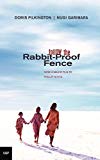In this book, Doris Pilkington tells the extraordinary story of the 2,400 kilometre, nine-week journey her mother and aunties Grace and Daisy made from the south of Western Australia to Jigalong in their own Country in the north. She also gives the background to the colonial invasion of Western Australia, an invasion which led to loss of land, culture and social structures. This paved the way for large numbers of white men to settle Indigenous Country.
It was one of these men, Thomas Craig, an Englishman and inspector on the rabbit-proof fence, who became Molly’s father. As part of the Australian Government policy for the removal of children with a white parent, when Molly was about 15 years of age, the girls were taken from their home and sent south to the Moore River Native Settlement, located near Mogumber, 115 kilometres from Perth. The removal and subsequent journey by boat was, for children who’d never seen the sea, terrifying and their time at the Settlement, equally disturbing as there were barred windows, locks and, above all, only each other as family.
The girls were part of the Stolen Generations but, unlike so many, they managed to escape and find their way back home by following the rabbit-proof fence, finding food and water along the way, helped by some station owners, pursued by police and hiding from anyone who might betray them and send them back. It is an immensely moving story of enormous courage and determination.
The book has a glossary of Mardujara (Maduwongga) words at the end with occasional Mardujara words appear in the text. In a brief section telling what happened to the girls in later life, Pilkington pays special tribute to Auntie Daisy, whom she says was a wonderful storyteller whose vivid memories made writing the book possible.
Doris Pilkington’s mother Molly Craig was born at Jigalong (circa 1917) the daughter of Maude, a Martu Aboriginal woman, and Thomas Craig, a white Australian fence inspector. The Martu people (Mardudjara) had moved from the nearby Great Sandy Desert to Jigalong.

